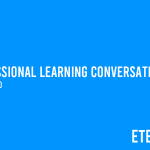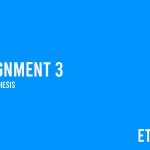Who’s Who?
Alan Matheson Turing (1912-1954)
Turing played a large role in deciphering Nazi communication during WWII. He also aided in the creation of some of the first personal computers and has been widely honoured for his contributions. Turing contributed to AI by creating the “Turing Test” which questioned if computers could “think” like humans.
John McCarthy (1927 – 2011)
McCarthy was a professor at Stanford University who contributed significantly to AI research through various published papers. He is credited with shifting the research focus to the logic aspect of AI and for the development of the LISP programming language.
Herb Simon (1916 – 2001)
Simon believed in the future of AI and was seen as one of its co-creators. He maintained a belief that we would all be replaced by machines one day. Simon questioned the decision-making process and focused greatly in this area.
Marvin Minsky (1927 – 2016)
Minsky co-founded the MIT’s Artificial Intelligence Lab to develop an understanding of AI. Minsky believed that anything a brain could do should be transferable to a machine since the brain is simply our own computer. He strived to understand how the mind works through his book, The Society of Mind.
Timnit Gebru (1982)
Gebru is seen as a leader in today’s AI sector and is well respected for research relating to ethical AI practices. She strives to improve diversity in the technology industry and was forced out of her position at Google because of her research findings.
Machine Programming Languages v. Human Languages
Machine programming languages are much more restrictive than human languages. Humans can provide a thought or share an idea using many different sentence structures and vocabulary options. We can shorten words and use internal slang and sayings while machine programming languages require a specific syntax that does not leave room for interpretation.
Machine programming languages require definitive meaning and precise instructions compared to the loose rules of language. If a command is not in the correct order or a single piece of code is missing, the language breaks down. Although both languages have rules, machine programming languages are much stricter.
Artificial Intelligence v. Human Intelligence
Although artificial intelligence and human intelligence have a clear boundary in today’s world, one day that will change. The difference between the two will continue to narrow until they essentially become one. For now, humans continue to try to embody their intelligence into artificial intelligence so that it may one day outlive us. We measure our own intelligence through academic assessments, while we measure artificial intelligence through computation speed and accuracy at a more precise level. The one main difference is the human ability to use intelligence to adapt which is something that artificial intelligence has yet to master.
Machine Learning v. Human Learning
Humans can learn through a wide variety of means including data, experiences, and emotions. These means allow us to learn the same lesson from multiple viewpoints, and we normally conclude our learning through the lens of how it impacts us (Heilweil, 2020). Machines learn directly from data as they are unable to mimic our emotions/experiences, and therefore cannot take them into account. This is evident in the ability for machines to discriminate. Machine’s sole reliance on data means if the data provided trains the machine to discriminate, the machine is unable to correct this issue without human intervention.
Myself v. Machine
My responses to the questions contained a mixture of online research with my own thoughts that I have questioned in recent years. With the continuing trend of digital assistants and reliance on digital technologies, I have wondered how far we will go in the field of artificial intelligence. I place a lot of emphasis on emotions and emotional decision making which is an area that I have the greatest doubts that an AI would be able to mimic. Decisions on how we conduct ourselves in daily social interactions most often do not solely rely on data, and I cannot begin to think of a way to embody technology with the human conscience to assist machines in this area.
However, I do believe that a machine can be programmed to acknowledge emotions as its weakness, and therefore could answer these questions with that in mind. I also do think a machine could do a better job at concisely answering the questions above using data, so possibly my imperfections would hint at a human writing the above responses. However, a machine can be programmed to show certain human imperfections, so it is difficult to say with perfect certainty that a human wrote the responses above.
Bibliography A&E Networks Television. (2020, July 22). Alan Turing. Biography.com. Retrieved September 21, 2022, from https://www.biography.com/scientist/alan-turing BBC. (2016, January 26). Ai pioneer Marvin Minsky dies aged 88. BBC News. Retrieved September 21, 2022, from https://www.bbc.com/news/technology-35409119 George, B. S., & Gillis, A. S. (2021, June 14). What is the turing test? SearchEnterpriseAI. Retrieved September 21, 2022, from https://www.techtarget.com/searchenterpriseai/definition/Turing-test#:~:text=The%20Turing%20Test%20is%20a,cryptanalyst%2C%20mathematician%20and%20theoretical%20biologist Hao, K. (2022, January 10). We read the paper that forced Timnit Gebru out of google. here's what it says. MIT Technology Review. Retrieved September 21, 2022, from https://www.technologyreview.com/2020/12/04/1013294/google-ai-ethics-research-paper-forced-out-timnit-gebru Harris, A. (2018, November 1). Human languages vs. programming languages. Medium. Retrieved September 25, 2022, from https://medium.com/@anaharris/human-languages-vs-programming-languages-c89410f13252 Heilweil, R. (2020, February 18). Why algorithms can be racist and sexist. Vox. Retrieved September 25, 2022, from https://www.vox.com/recode/2020/2/18/21121286/algorithms-bias-discrimination-facial-recognition-transparency Herbert A Simon. https://www.ubs.com/microsites/nobel/en/laureates/herbert-simon.html. (n.d.). Retrieved September 21, 2022, from https://www.ubs.com/microsites/nobel-perspectives/en/laureates/herbert-simon.html John McCarthy's Home Page. John McCarthy. (n.d.). Retrieved September 21, 2022, from http://www-formal.stanford.edu/jmc/






